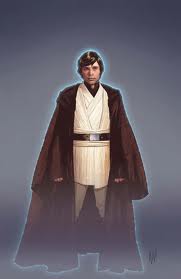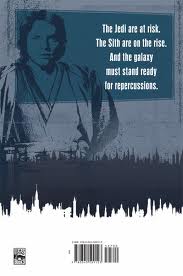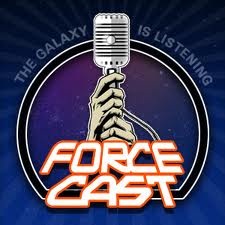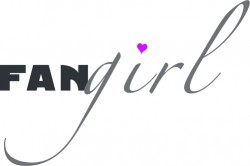Killing My Hero, Braving the Unknown, and Giving the ForceCast Cooties
So the month of May might just go down in my personal history books as a win. Shuttle launch, Star Wars Weekends, Celebration VI announcements, lots of great season-ending finales for my favorite television shows, Legacy: War #6… And that isn’t even the real highlights yet!
A few months ago, in a discussion about the odd turnabout in where I found my Star Wars fan fun – here I am a book girl watching and loving a cartoon – I told my friend and editor Lex that it pained me to see the hero of my youth, Luke Skywalker, turned into someone I just didn’t like. There were other heroes of the Star Wars Expanded Universe that I had begun to feel the same way about, but Luke’s plight seemed to be the crux of what the novels had hung their entire hat upon. That’s when the realization first struck me – I didn’t want Luke hobbling into the Galactic Alliance public benefits office to get Social Security, or getting royally whomped in some battle as a ninety-year-old. I wanted him to go to out in a blaze of glory, a hero making his last stand and winning even at the cost of his life.
 Killing Luke Skywalker at first blush might seem like an oversimplified solution – taking away the crutch – to the storytelling doldrums of the Star Wars EU, but ultimately the message is fix his character arc and the rest should follow. Unlike the six movies, which are a self-contained saga, the EU is a serial storytelling experience. (Which is a funny irony in a way, because George Lucas was inspired by the classic movie serials when he designed the Star Wars movies, but now it’s the Expanded Universe that’s the real serial of Star Wars storytelling.) In thinking as a writer and storyteller about removing Luke entirely from the ongoing storyline going forward, I was working off two principal insights I had gained as a fan of serial television. First, no character is indispensable. George Clooney’s exit from ER did not spell ultimate doom for the series. Sure he was a draw, but there were other great stories to tell within a Chicago trauma center, and the series continued with much success long after his departure. Second, it’s not enough for a creative team to know the final destination – they also need to know the path they’re taking to get there. When they don’t have a map and a schedule, the strength of the storytelling loses its urgency and sense of purpose. The best recent example of this, in my view, is watching the ebb and flow of quality between the seasons of Lost. As soon as the Lost team decided on when and how, the quality rose to the level early fans of the show had come to expect. The reimagined Battlestar Galactica series suffered the same problem at just about the same time.
Killing Luke Skywalker at first blush might seem like an oversimplified solution – taking away the crutch – to the storytelling doldrums of the Star Wars EU, but ultimately the message is fix his character arc and the rest should follow. Unlike the six movies, which are a self-contained saga, the EU is a serial storytelling experience. (Which is a funny irony in a way, because George Lucas was inspired by the classic movie serials when he designed the Star Wars movies, but now it’s the Expanded Universe that’s the real serial of Star Wars storytelling.) In thinking as a writer and storyteller about removing Luke entirely from the ongoing storyline going forward, I was working off two principal insights I had gained as a fan of serial television. First, no character is indispensable. George Clooney’s exit from ER did not spell ultimate doom for the series. Sure he was a draw, but there were other great stories to tell within a Chicago trauma center, and the series continued with much success long after his departure. Second, it’s not enough for a creative team to know the final destination – they also need to know the path they’re taking to get there. When they don’t have a map and a schedule, the strength of the storytelling loses its urgency and sense of purpose. The best recent example of this, in my view, is watching the ebb and flow of quality between the seasons of Lost. As soon as the Lost team decided on when and how, the quality rose to the level early fans of the show had come to expect. The reimagined Battlestar Galactica series suffered the same problem at just about the same time.
Of course, the ending of Lost also highlights the truth that not everyone is going to be happy with the conclusion, but I knew that going into the development of the Luke Skywalker Must Die blog. I’m a writer at heart. First I told stories in my head. Later I realized other fans write them down, so I ventured into the fray of fanfiction, where the right of passage is to kill your favorite character at least once. Someone inevitably doesn’t like it, and they’ll tell you. As I embark on writing my first original novel, I’m going in with eyes wide open that some people won’t like my book, and some people who like the first book in my series might not like what happens in the second or third book. Professional authors definitely need thick skins. But I’d also argue that getting questioned every step of the way by fans – and indeed that’s what happens for fanfiction writers who post chapter-by-chapter as they write instead of only when the whole story is finished – teaches you to believe in the story, to know why your story is going in a certain direction, and then to proceed ahead with conviction.

Jumping into the world of writing an actual novel in my own universe, where I have to wait to completion before sharing the journey of my characters, is a bit like jumping into the unknown for me. But my time spent as a fanfiction writer has given me the tools to understand how readers react to even little pieces of what you write and swirl them around into their own minds to form often quite disparate opinions. Everyone comes to a story, podcast, or blog with their own unique perspective. The only story you can tell as a writer is the one that speaks to you.
So when Jason and Jimmy invited me to discuss my blog on the ForceCast, I wasn’t afraid of their differing opinions or their impressions of EU fans. It’s true what I said during that interview about the blog’s title: in the end, all I want is for the Powers That Be in the Star Wars EU to reconsider Luke’s role, how too much of his story so far has devalued his worth as a hero and how his still-too-prominent place in the saga has diminished the potential for the growth of other characters. If I had written a blog called Luke Skywalker Must Retire To Dagobah, the point would not have carried anything close to the same impact. Although I realize many aren’t persuaded, I still believe that Luke’s death would be a win-win for the franchise and the fans in the ongoing serial novel storylines. With the release of the final Fate of the Jedi book cover, Luke now graces three of the nine covers. I don’t disagree in principle with him getting the last cover – in fact even as I wrote Luke Skywalker Must Die I was pretty confident that’s what we’d get – but the cover choices in between should have been more diverse.
On Facebook:
Star Wars Books I like to think that Luke Skywalker has plenty of adventures still left for him. (Erich)
Tricia Barr Erich, Mara’s death hasn’t stopped Star Wars Books from telling more stories of her adventures. Quite looking forward to Choices of One.
The irony is that even within its own ranks, Star Wars Books doesn’t understand that killing off a major character won’t prevent them from writing about his or her adventures, just as they’ve done for Mara and Thrawn in the upcoming Choices of One. These Luke Skywalker books then would be special inclusions to the EU instead of just another book with – yawn – Luke on the cover, which is where the fan reaction is now.
I had approached the Luke Skywalker Must Die blog with plenty of thought and perspective, and a goal – to get people talking about where the Star Wars EU was headed and why it wasn’t captivating readers like other book franchises have proven capable of. It certainly got the guys on the ForceCast talking, and it was a pleasant surprise that they invited me on. Some people expected fireworks or sparks of indignation on the show, but I had listened to the ForceCast enough to know that Jason and Jimmy held opinions of the Star Wars EU very similar to my own. Despite what anyone has said, I had no doubt they were fans who were a little kooky for all things Star Wars.
 Sure, the ForceCast has thrown around the term “EU kook” and plenty of people are going to identify with that, being kooky about the EU. But what they’re really trying to do, I think, when they use the term “kook” is to shed light on an aggressive and blindered subset of fans who can be outright mean when it comes to their version of Star Wars and the fandom. This doesn’t mean, for instance, that everyone involved with the EU Clone Wars Petition behaves as this type of fan. Or that people who didn’t support the petition can’t be that type of fan. In fact, some of my fears as a fan are expressed within the petition itself.
Sure, the ForceCast has thrown around the term “EU kook” and plenty of people are going to identify with that, being kooky about the EU. But what they’re really trying to do, I think, when they use the term “kook” is to shed light on an aggressive and blindered subset of fans who can be outright mean when it comes to their version of Star Wars and the fandom. This doesn’t mean, for instance, that everyone involved with the EU Clone Wars Petition behaves as this type of fan. Or that people who didn’t support the petition can’t be that type of fan. In fact, some of my fears as a fan are expressed within the petition itself.
As for Jason’s phrasing, the essence of what he’s trying to capture in a word or two – I know exactly the kinds of fans he’s talking about; on multiple occasions over the years I’ve taken their wrath full-on.
Among the EU fandom, one of the tactics these blindered fans like to use is to reduce another fan’s position by pointing out an inadequate knowledge of the EU’s vast minutiae, often from out-of-print RPG manuals or an obscure entry in an encyclopedia or Essential Guide. Here’s a shining example of this mindset. A few years back the moderators of a particular board which discusses EU books and comics opened up a discussion to address complaints about their particular forum. As a fan of the EU who had posted in this forum and saw room for improvement, I entered the discussion. Some respondents, including me, were labeled by the mods themselves as “outsiders.” That was the handwave used to dismiss the participation of some in that discussion. I’m not sure how there can be “outsiders” and “insiders” when discussing the EU books, but there it is – that insidious mindset that some just aren’t worthy. Looking at it as a fangirl, who has been participating in message boards for almost ten years, women don’t generally scour over RPG manuals or Star Wars encyclopedias, so women often find themselves targeted by this mostly male self-proclaimed hierarchy of fans that infects some fansites.
My personal favorite, though – often found within fan debates but sometimes even in the ways the Powers That Be have dismissed some fans’ opinions – is the ’shipper handwave. Apparently if a fan likes two characters together, instead of just one, they have lost all rational sense and any ability to have a reasonable opinion on either character. The merits of anything a ‘shipper brings to a discussion or the Star Wars franchise is rendered invalid. Unfortunately, it’s women who have been blasted with this ‘shipper handwave more often than not. (Although I think there’s no small irony in the fact that when it comes to novel sales women are the driving force, and you don’t need to look any further than the most financially successful recent novel franchises to realize that ‘ships sell – big time.) No matter, it’s not just a female problem; it’s a fan problem.
 My decision to call my blog FANgirl was a deliberate word choice to separate myself from a certain set of fanboys. Not to dismiss them or handwave them out of the conversation, but rather to create a distinction that, in my view, has too often not been recognized within the fandom. It’s impossible to make those kinds of distinctions without labels. Yes, I’ve had problems with certain male fans within the Star Wars fandom – and I’ve had them with female fans, too – but that doesn’t mean I hate all fanboys. It’s not a horrible insult to call someone a fanboy; I don’t spit the word with venom and vile. If I need a solid fact or can’t understand a continuity issue, there are fanboys I know I can ask. I’ve had great discussions and debates with plenty of fanboys about their favorite characters, my favorite characters, and everything else in between. But that doesn’t take away the problem that there is a minority group within the Star Wars community who have situated themselves into positions that afford them the ability to abuse other fans. I hope fans everywhere look within their ranks and tell the ones who belittle any type of fan that it’s not okay.
My decision to call my blog FANgirl was a deliberate word choice to separate myself from a certain set of fanboys. Not to dismiss them or handwave them out of the conversation, but rather to create a distinction that, in my view, has too often not been recognized within the fandom. It’s impossible to make those kinds of distinctions without labels. Yes, I’ve had problems with certain male fans within the Star Wars fandom – and I’ve had them with female fans, too – but that doesn’t mean I hate all fanboys. It’s not a horrible insult to call someone a fanboy; I don’t spit the word with venom and vile. If I need a solid fact or can’t understand a continuity issue, there are fanboys I know I can ask. I’ve had great discussions and debates with plenty of fanboys about their favorite characters, my favorite characters, and everything else in between. But that doesn’t take away the problem that there is a minority group within the Star Wars community who have situated themselves into positions that afford them the ability to abuse other fans. I hope fans everywhere look within their ranks and tell the ones who belittle any type of fan that it’s not okay.
Another reason I called my blog FANgirl was based on my impression, and the impressions I have heard from other fans, that the EU specifically has been too heavily catering to a small set of fans, mostly men. I dubbed them “uberfanboys” when pointing to the dramatic shift in books that tell stories about Luke, Luke, and more Luke, Ben, some more Ben, an assortment of Sith, mostly male original characters, and topped all that off with encyclopedias and an exorbitant number of guidebooks. That’s not to say uberfanboys haven’t contributed positively to the franchise in many ways, or that I think their hearts aren’t in the right place. But I do think the EU has become one-sided. In part, that’s attributable to the entrenched “insiders” who have done everything in their power to keep those they view as the “outsiders” out. On message boards, moderators rarely retire; they quit when they acquire real-world responsibilities or get removed after too much inactivity when they got bored. Review staff who don’t review books don’t step down, even when their fellow fans and the Powers That Be aren’t getting any benefit from those free ARCs. This isn’t to say all people in power sit entrenched in a Gollum “My precious!” mentality, but too many of them see no “we” in the fandom. As the internet fandom has expanded, though, the “insider” circle has less and less power as more and more fans recognize that we aren’t limited to tightly held message boards that only accept one way of thinking about Star Wars.
Had the entrenched group of fans been right, The Clone Wars would be a veritable trainwreck of a show trapped in poor ratings (if not already off the air), Ahsoka would be the most poorly received character in the history of Star Wars ever (even below Jar Jar Binks!), and Her Universe would have fallen flat on its face with no meaningful amount of fangirl dollars to support it. I’ll be honest, I was really skeptical of the idea of The Clone Wars cartoon at first, too, but out of respect for the vision that George Lucas has proven time and again as a storyteller I gave it a shot. To his credit, Star Wars is bigger than ever, young ladies have a new heroine coming from the TV show and a new role model in Ashley Eckstein, and we’re practically guaranteed more Star Wars than we can possibly imagine.
The simple fact is, when we buy books and watch movies we become patrons of an art, but it’s still the artist’s prerogative to tell the story he or she wants to tell. The trouble with the petition is, while thoughtful and carefully worded, it in essence asks George Lucas to curtail his dreaming. So while I do believe every fan has a right to express his opinion, I don’t believe fans have a right to tell, or politely ask, a creative person to stop imagining. Or we’re in big trouble. With Star Wars there is a second dynamic in play, though, which is the money Lucasfilm generates that allows George Lucas to lead the vanguard into a vast field of breakthrough technology that will someday make it easier for more and more storytellers to bring their dreams to the big and small screen. We know he values his goal of leaving that legacy, and he’s not going to kneecap himself from achieving it. So at times he may indeed be forced to choose whether some of the stories he might want to tell are worth the risk of alienating too many of his patrons. (Of course, making a smart choice of that kind depends on having quality, reliable information about the customer market and what the impacts of certain choices is likely to be, and at least when it comes to the EU books it doesn’t appear that such information is being gathered or accurately assessed.)
 This isn’t to say I believe George Lucas is above scrutiny. In my Luke Skywalker Must Die blog when I refer to the Powers That Be, I’m including anyone involved in making decisions about the EU products. Lucas Books has The Maker’s name on it, after all, and as a businessman who has consistently given his seal of approval to fan films, television shows, and amusement park rides that represent his vision for quality entertainment, I don’t think it’s too much to ask as a customer for him to put in place a system that can successfully provide quality entertainment in the medium of books. Let’s face it, the current system isn’t working: not in the quality of cover art, in the diversity of the storytelling or characters, or in the production values. Petitions, however, will never change a business’ way of thinking, though – only affecting the bottom line will.
This isn’t to say I believe George Lucas is above scrutiny. In my Luke Skywalker Must Die blog when I refer to the Powers That Be, I’m including anyone involved in making decisions about the EU products. Lucas Books has The Maker’s name on it, after all, and as a businessman who has consistently given his seal of approval to fan films, television shows, and amusement park rides that represent his vision for quality entertainment, I don’t think it’s too much to ask as a customer for him to put in place a system that can successfully provide quality entertainment in the medium of books. Let’s face it, the current system isn’t working: not in the quality of cover art, in the diversity of the storytelling or characters, or in the production values. Petitions, however, will never change a business’ way of thinking, though – only affecting the bottom line will.
Some of the fears of fans that drove fans to sign the petition are valid, and I think as fans it’s fair to ask that we all acknowledge that. Everyone has a part of Star Wars that they identify with – whether it’s a character like Luke or Jaina or Mara, or an era such as the Prequels or the Old Republic – and it’s terrifying to think we might lose it. As a creative mind, I never think of it as lost because George Lucas is also generous enough to let his fans play in his sandbox. People like Anakin Solo fans know that better than anyone because he lives on in the fandom to this day. But as I’ve explained previously, I think a Star Wars reboot or overwriting too much of the EU would be a financial fiasco. It’s important, though, that if we expect George Lucas to respect us as fans, then he needs to be shown the same respect in return.
So is it disrespectful for the ForceCast to use the term “EU kook”? I’m not bothered by the term. I like the EU and I’m self-aware enough to admit I’m a bit kooky about it at times. The ForceCast is an entertainment medium that mixes commentary and delivers fan news, and that makes it an invaluable addition to the fandom. If people paid close attention to Jason’s delivery of the “you might be a kook” segment, he was clearly mirroring Jeff Foxworthy’s classic “you might be a redneck” routine – and as everyone knows, Jeff Foxworthy isn’t afraid to admit he’s a redneck.
On Facebook:
Tricia Barr Hey, Jason and Jimmy, great debate on Luke Skywalker. Exactly the dialogue I was hoping to spark. I don’t expect everyone to agree. Just to be clear, since you misrepresented my opinion on the EU petition, I do not support it and think Lucas has the right to call the ball in his universe. Other than that, I don’t mind being called an EU kook. MTFBWY
When I responded to the ForceCast originally on Facebook and Twitter after their May 17th podcast, I did so to address Jason’s impression that, because I’m passionate about the EU, I might fit within the group that wants Lucas out and believes continuity and factoid trumps everything in Star Wars. (Again I’ll be clear, I don’t believe the petition says they want Lucas out, but I do believe this is where some fans of this mindset have rallied.) If Jason was truly close-minded, he could have monologued my opinions off into the oblivion of the Unknown Regions, but he didn’t. He and Jimmy gave me a chance to say my piece. I did just that and hopefully represented a different perspective on the fandom.
Being catalogued into a label that sometimes has a negative connotation is something that happens to me quite regularly. Working in a male-dominated industry, I’ve been called a “bitch” so many times I can turn and smile when it comes my way. It doesn’t hurt, because just like I’m willing to embrace my inner EU kook, I’ve learned to love my inner bitch, too. The trick to living with these labels is to acknowledge what’s positive in them. In my industry I’ve proven fierce under pressure, and a determined and dogged (pun entirely intended) proponent for my clients. In forming my own message boards, I guard the haven I’ve created where female fans can feel safe to discuss anything. Sometimes it’s good to have a bitch around.
“EU kook” to me is a label to identify a specific mindset within the EU fan community just like I’ve used the term “fanboy echochamber.” There is no doubt that there is within these groups a small subset of fans who are only truly concerned with protecting their own self-interest. So, at least as I see it, the only people who should really be offended by the term “EU kook” are the ones who fall into the blindered mindset Jason spoke of, the people that really do want Lucas to limit his dreams in order to fulfill theirs. And I’m back to what I said earlier: Every fan has the right to their opinion about Star Wars, even George Lucas.
- Hyperspace Theories: SKELETON CREW Ahoy! - December 29, 2024
- Hyperspace Theories: WICKED Part I Rises to the Moment - December 6, 2024
- Columbia’s Vader™ Collection Launches Dec 5 - November 27, 2024










A very interesting blog. I especially liked the insights about writing, your views on fandom and debates, and George Lucas’s right to creativity.
One particular point that brought back old memories:
“Apparently if a fan likes two characters together, instead of just one, they have lost all rational sense and any ability to have a reasonable opinion on either character. The merits of anything a ‘shipper brings to a discussion or the Star Wars franchise is rendered invalid. ”
More than that – if you happen to be a ‘shipper of a rival ‘ship, you have clearly lost all rational sense and any ability to have a reasonable opinion on human relationships in general, much less those two characters! En garde, Sith Lord! ;)
(And heaven forbid if that “fan” happens to be the author! :P)
And now, to begin the big tangent for the rest of this comment.
“Being catalogued into a label that sometimes has a negative connotation is something that happens to me quite regularly. Working in a male-dominated industry, I’ve been called a “bitch” so many times I can turn and smile when it comes my way. It doesn’t hurt, because just like I’m willing to embrace my inner EU kook, I’ve learned to love my inner bitch, too. The trick to living with these labels is to acknowledge what’s positive in them. In my industry I’ve proven fierce under pressure, and a determined and dogged (pun entirely intended) proponent for my clients. In forming my own message boards, I guard the haven I’ve created where female fans can feel safe to discuss anything. Sometimes it’s good to have a bitch around.”
I will note that I don’t believe in using “bitch” as a positive term. I will, however, note that I DO believe in using it as a unisex term, and have used it as such… ;) …and that, by my definition of the term, you’re nowhere near a bitch. Aggressive? Yes. But you’re courageous, clear-headed, and rational – three things that are diametric to my definition of “bitch” (which, to make a long story short, is basically “a particularly vitrolic but cowardly bully”).
_________________________________________________________________________________
Going off-topic, I saw this post in the LominAleCantina forums:
“Also, any thoughts on the powerful woman=mary sue=bitch dynamic works, or how it can be broken/addressed in storytelling is always welcome.”
Hmm. Well, I had a long rant on this, but decided to edit it down, so as to spare people my endless rambling…
Long story short, I believe that often authors of both sexes confuse emotionally-abusive behavior with strength, particularly when attempting to write powerful women – due, probably, to having no idea how to write them.
Here’s a checklist that might be interesting to run against quite a few main characters (taken from http://www.helpguide.org/mental/domestic_violence_abuse_types_signs_causes_effects.htm):
Does the character:
* have a bad and unpredictable temper?
* act excessively jealous and possessive?
* humiliate or yell at friends or lovers?
* criticize them and put them down?
* treat them so badly that they’re embarrassed for friends or family to see?
* ignore or put down their opinions or accomplishments?
* blame them for his or her own abusive behavior?
* see them as property or sex objects, rather than as people?
I can only wish I was joking.
If a character is supposed to be a “powerful woman” and has the author behind her all the way, yet pings on several abusive personality traits, I will call her a bitch and a Mary-Sue and feel no remorse whatsoever. I do the same to male characters as well.
Quite frankly, in my experience, abusers tend to be weaker than the average person – they lack the inner strength to handle hard blows on their own, and, despite claims to be ‘leaders, not followers’, display utter submission towards the few authority figures they recognize. This also tends to be true of fictional characters with abusive personalities, so they fail even to be real, albeit unintentionally villainous, examples of powerful women (or men).
As for genuine powerful women:
Those who most frequently cry “Mary-Sue!” (above and beyond others, I mean), in my experience, either possess highly aggressive and abrasive personalities or greatly desire “complexity” in their stories. In the former case, they profess that the characters in question are “too perfect” and that “real people” feel far more angst and anger, and, furthermore, that the stories are insufficiently “edgy”. In the latter case, they profess that the characters in question are “too simplistic” and that “real people” are more morally ambiguous and suffer far more, because life is a great ocean of moral murkiness and misery.
It’s more a matter of their taste in literature versus the work in question than anything else, I mean. I don’t think you’ll hear GRRM’s characters being randomly slapped with the “Mary-Sue” title.
As for the “bitch” part – sad to say, character bashing is a part of fandom that’s been around since the founding of Athens (just read what Plutarch says about how playwrights used to mock politicians they disliked… :P). As for why powerful women get it disproportionately, there’s a few reasons.
A) They rival a previously-established character, challenging that character’s role in his or her fans’ eyes. Due to the established gender imbalance, these characters tend to be male; for complex social reasons, domination dynamics, etc., powerful women are more likely to be seen as rivaling a powerful established male character than being a potential ally.
B) Some people will translate “more than one romantic partner mentioned over the course of a series” into “slut”. This is definitely gender-weighted, as people will either not care about male characters doing the same thing or applaud them for it. (And I’m not usually one to see gender bias, so if I see it…)
C) They fail to show someone’s favorite character The Respect They Deserve (in the fan’s eyes). I’d actually say male and female characters get this to equal degrees, but…
D) Given all three of these factors, people, sorry to say, feel more comfortable savagely attacking women than men, because it’s more accepted to gather around and tear a women to shreds, because women are perceived as weaker and thus don’t intimidate people who might hate similar male characters but keep silent, and because female fans are less likely to barge into such a shred-fest and start vehemently arguing in the character’s defense.
I do believe that both this and the Mary-Sue issue are based on issues outside the text itself. As far as what can be done outside the text, I hate to say it, buuuuut… one issue is that, if a male fan jumps into an argument in defense of a male character, he’s not seen as representing any special group, save, perhaps of Character X Fanboys. If a female fan jumps into an argument in defense of a female character, she has to worry about being a representative of all female fans and may be accused, in the course of the argument, of projecting herself too much onto that character and of wanting that character to be some ‘unrealistic feminist role model’. To some extent, this may be true, but the hypothetical male fan would not face the same accusations, and that’s the issue.
As such, much as I hate to engage in what sounds like sycophantic flattery, even though it’s meant most sincerely – This blog DOES provide an invaluable service, in that you’re willing to stand up and make your voice heard, no matter what it takes or what funny looks you may get from other fans. Thank you for your work!
“If you see this type of response around the ‘net, in whatever forums you hang in, I’d love to catalogue more examples. Saving for a future blog. Also, any thoughts on the powerful woman=mary sue=bitch dynamic works, or how it can be broken/addressed in storytelling is always welcome. ”
If you really want to collect examples and thoughts for a future blog…
[Clarification: These people can PROVIDE examples, not BE the examples!]
das-mervin.livejournal.com is a lot more articulate regarding what makes a Mary-Sue than I am, and she has seen quite a good deal of bashing of strong female characters by fans of all sorts, so she could probably provide a few examples. Mention Lily Evans and Snape fans to her, and I’m sure she could provide a few dozen.
She can also discuss the in-text portrayals of strong females in the Twilight series as ‘bitches’, particularly Leah Clearwater.
On the Twilight tangent, halflight007.livejournal.com wrote her Senior Thesis (that wasn’t quite the term, but it was along those lines) on sexism in Twilight, and also has dealt quite a lot with Mary-Sues and bashing of female characters by fandom, so she would probably be able to give interesting input.
gehayi.livejournal.com would also probably have a lot to say about powerful women, Mary-Sues, how fandoms regard women, gender inequality as expressed in fandom and elsewhere, and so on, so she’s definitely worth asking.
Those are the main three. (*mutters to self* I really should get back on LiveJournal one of these days…)
Good luck!